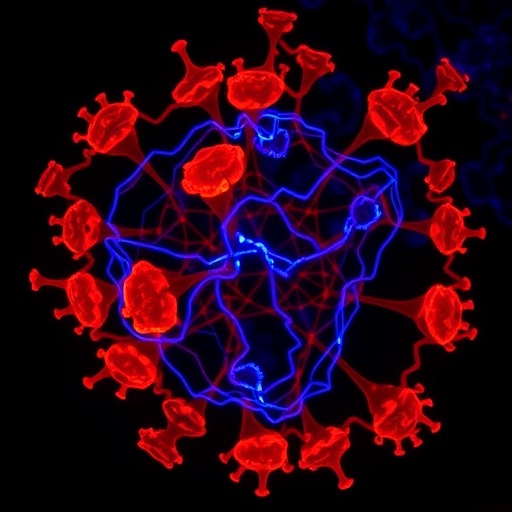A pioneering study led by researchers at the UCLA Health Jonsson Comprehensive Cancer Center is uncovering critical mechanisms behind melanoma’s notorious resistance to immunotherapy, and it points the way to innovative strategies that could dramatically improve patient outcomes. Melanoma, the most lethal form of skin cancer, often initially responds to immune checkpoint inhibitors—an advanced form of cancer immunotherapy—only to relapse months or even years later. This study dives deep into the genomic evolution of melanoma cells, revealing how large-scale DNA copy-number variants empower the cancer to evade immune destruction, offering new hope for durable treatments.
Resistance to immunotherapy presents one of the most formidable challenges in oncology today. While checkpoint inhibitors that unleash the immune system have revolutionized melanoma treatment, nearly half of patients who initially respond eventually suffer tumor recurrence. By closely examining genomic alterations, the UCLA team identified that relapsing tumors frequently carry copy-number variations—sections of the genome that are deleted or amplified—that specifically disrupt the tumor cells’ intrinsic pathways governing apoptosis, or programmed cell death. These genetic alterations blunt the cancer cells’ capacity to self-destruct when attacked by immune T cells, thereby fostering tumor survival and regrowth.
Historically, much cancer resistance research has concentrated on small-scale mutations such as point mutations. However, this groundbreaking work illuminates the pivotal role of large-scale genetic events like copy-number changes as efficient evolutionary tools for cancer adaptation. These mutations affect multiple genes simultaneously, especially those regulating apoptosis. This gene dosage imbalance cumulatively reshapes the tumor cell biology, endowing melanoma cells with enhanced capability to withstand immune-mediated insults triggered by checkpoint blockade therapies.
The investigators mapped tumor evolution by comparing samples obtained from melanoma patients at various time points: before treatment, after initial response, and at relapse following immune checkpoint inhibitor therapy. Using high-resolution genomic profiling and integrating published datasets of immunotherapy resistance genes, the UCLA team utilized both in vitro cell line models and mouse models to simulate and dissect the resistance mechanisms. Their comprehensive approach unmasked heterogeneous tumor subclones bearing distinct permutations of copy-number variants, illustrating that resistance mechanisms are not static but dynamically evolve under therapeutic pressure.
One of the most striking insights came from single-cell whole-genome sequencing technologies, which revealed that resistance-associated genetic aberrations already exist at low frequencies within tumors prior to immunotherapy. This finding challenges existing paradigms, suggesting that these resistant subclones undergo natural selection during treatment, eventually dominating the tumor landscape upon therapy-induced selective pressure. These data imply that monitoring tumor evolution at the single-cell level could be crucial for early identification of patients at risk of relapse and could inform more personalized treatment strategies.
In a transformative translational phase, the researchers explored whether pharmacologically lowering the apoptotic threshold of melanoma cells could restore their sensitivity to immune attack. Utilizing pro-apoptotic drugs on both cultured melanoma cells and mouse models, they observed reinstated immune-mediated tumor cell apoptosis. Most compellingly, when these drugs were administered in a mouse model after initial tumor regression induced by immunotherapy, tumor relapse was effectively prevented. This opens the door for adjuvant therapies that enhance cancer cell susceptibility to immune destruction, potentially extending the durability of immunotherapy responses.
Dr. Roger Lo, the senior author and a multidisciplinary professor at UCLA, underscored the significance of these findings: “Targeting the apoptotic machinery within residual tumor cells is a promising strategy to pre-empt resistance and prolong clinical benefit from checkpoint inhibitors. By intervening early in the evolution of resistant subpopulations, we aim to transform melanoma from a deadly cancer to a manageable chronic condition.”
The implications extend far beyond melanoma. Since immune checkpoint inhibitors have been adopted to treat a variety of cancers, understanding the genomic underpinnings of resistance could have broad impact. The UCLA team’s approach—integrating genomic analyses, single-cell sequencing, and mechanistic functional studies—provides a roadmap for deciphering resistance in other tumor types, illuminating new avenues for therapeutic innovation in the rapidly advancing field of cancer immunology.
Nevertheless, the study recognizes the need for larger patient cohorts and additional experimental models to validate and refine these insights. Future work will expand genomic analyses to dissect the full complexity of resistance evolution and will explore clinical trial designs that incorporate pro-apoptotic agents alongside immunotherapies. These trials could potentially shift paradigms by incorporating tumor evolutionary monitoring and tailored intervention strategies aimed at sustaining long-term remission.
The synergy of advanced genomic techniques and immunotherapy research exemplifies the scientific frontier in oncology, wherein deciphering the cancer genome’s large-scale changes can illuminate resistance pathways invisible to previous methodologies. This comprehensive perspective offers a compelling example of how molecular insights can drive the development of next-generation therapies that more effectively harness the immune system’s power against cancer.
In conclusion, this UCLA study adds a critical new dimension to the understanding of melanoma immunotherapy resistance. It reveals that genomic copy-number variants serve as a stealthy evolutionary mechanism, endowing tumors with a multi-faceted arsenal to defy immune eradication. The prospect of pharmacological manipulation of apoptotic pathways to thwart this resistance offers an exciting and tangible hope for improving survival outcomes in patients plagued by this aggressive skin cancer.
Subject of Research: Melanoma resistance mechanisms to immunotherapy and potential therapeutic strategies to overcome it.
Article Title: (Not provided)
News Publication Date: (Not provided)
Web References:
- UCLA Health Jonsson Comprehensive Cancer Center: https://www.uclahealth.org/cancer
- Published study in Immunity: https://www.cell.com/immunity/fulltext/S1074-7613(25)00431-5
- DOI link: http://dx.doi.org/10.1016/j.immuni.2025.10.001
References:
A study funded by the National Institutes of Health, V Foundation for Cancer Research, Melanoma Research Alliance, Melanoma Research Foundation.
Image Credits: (Not provided)
Keywords: Melanoma, Skin cancer, Cancer, Cancer research, Immunology, Cancer immunotherapy, Immunotherapy




